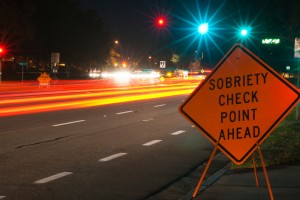 ComFest is one of the largest organized annual events in Columbus, and each year it serves as one of the busiest times for local and state law enforcement agencies in the area. ComFest is one of the largest organized annual events in Columbus, and each year it serves as one of the busiest times for local and state law enforcement agencies in the area.
The festival, held at Goodale Park in the Victorian Village area, is aimed at gathering the community for a weekend of musical performances, entertainment, food and drinks, art and other festivities. Hundreds of people volunteer each year, helping the festival thrive since 1972.
This large gathering of people often leads to several arrests. Law enforcement officers take an active role in ensuring the festival is safe and those in attendance obey the laws. In previous years, the festival has been closed early because of rowdy festival goers.
Local law enforcement agencies have undercover officers in the crowd at the event searching for those committing various crimes, including underage drinking, open container, drug trafficking, drug possession, possession of drug paraphernalia, disorderly conduct, assault and more.
Agencies also schedule drunk driving checkpoints near the festival to catch those who consume alcohol and get behind the wheel. These checkpoints can lead to a plethora of types of OVI arrests, all of which can carry steep consequences.
In Ohio, a first offense OVI is first-degree misdemeanor, which is punishable by a minimum of three days in jail and a maximum of 180 days in jail, fines up to $1,075 or both. A second offense within six years could be punishable by between 10 and 180 days in jail, $300 to $1,500 in fines and a driver’s license suspension between one and five years.
A third DUI offense would be considered much more serious in Ohio. Depending on the situation, this could result in two or more years of an administrative license suspension, between two and 10 years of a court-issued license suspension, lengthy jail sentences, up to $2,750 in fines and a mandatory treatment program.
The penalties for an OVI offense can change depending on several factors, including the driver’s level of intoxication. If the results of a chemical test indicate an alcohol level of 0.17 or above, the penalties could be enhanced. This could mean longer jail time, expensive fines and an extensive driver’s license suspension.
Drugged driving also is serious offense, and drivers could be targeted during ComFest. These checkpoints are used to catch drivers who may be under the influence of certain prescription drugs or illegal narcotics, including marijuana. The penalties would be the same as an OVI charge.
This event has a huge police presence, and visitors should be careful coming and going from this event. If festival goers are arrested for an offense, it is important to remember your rights, including the right to an attorney. Call Joslyn Law Firm at (614) 444-1900 to schedule a consultation with dedicated and experienced legal counsel and begin fighting the charges today.
 Memorial Day weekend is the official beginning of summer for most, and this means an increase in families traveling on the roadway for picnics, vacations and parties. AAA predicts more than 1.45 million Ohioans will travel at least 50 miles this upcoming weekend. Memorial Day weekend is the official beginning of summer for most, and this means an increase in families traveling on the roadway for picnics, vacations and parties. AAA predicts more than 1.45 million Ohioans will travel at least 50 miles this upcoming weekend.
However, this fun holiday can be one of the most dangerous times to travel, according to the National Highway Traffic Safety Administration, which reported 377 crash-related fatalities during the Memorial Day holiday period in 2012. These crashes could be caused by a variety of factors, including driving under the influence, which tends to increase during this holiday weekend.
A person can be charged with driving under the influence of drugs or alcohol in Ohio if he or she is found to be intoxicated by either substance or a combination of substances. This could be demonstrated by the person having a blood alcohol concentration of 0.08 or greater or if he or she fails a different chemical test.
Law enforcement agencies throughout the state will be cracking down on those who drink and drive during this weekend. Checkpoints and road blocks likely will be set up throughout Franklin County and the surrounding areas to deter drunk driving and catch those who violate the law.
The penalties for a DUI, or OVI, offense could be harsh and could include jail time, expensive fines and other restrictions. If a person is accused of causing damage to property or injuring another person as a result of a DUI-related crash, he or she could face severe sanctions.
Some of the worst DUI-related accidents are those in which a person is killed because someone decided to get behind the wheel drunk or under the influence of drugs. This could be considered an aggravated vehicular homicide charge. These cases are not handled lightly, and the prosecution is adamant about getting a conviction.
Generally, OVI aggravated vehicular homicide charges are considered second-degree felonies. This could mean between two and eight years in prison, court-adjudicated prison time, $15,000 in fines and a Class 1 driver’s license revocation for the rest of the person’s life.
If a person is convicted of an OVI aggravated vehicular homicide and he or she had a suspended or revoked driver’s license at the time of the offense, it could be considered a first-degree felony. Penalties for the offense could include between three and 10 years in prison, court-adjudicated mandatory prison time, $20,000 in fines and a Class 1 driver’s license revocation for the rest of the person’s life.
Having prior traffic-related homicide, manslaughter or assault offenses also could make an OVI aggravated vehicular manslaughter charge a first-degree felony. The penalties could be the same as if he or she did not have a valid driver’s license at the time of the offense.
Certain other prior offenses could make an OVI vehicular homicide charge a first-degree felony, including three guilty adjudications of OVI in the last six years, a guilty adjudication for a second or subsequent felony DUI offense or three guilty adjudications of physical control OVI in the last six years.
This first-degree felony could mean between 10 and 15 years in prison, a $20,000 fine and a Class 1 driver’s license revocation for the rest of the person’s life. If you have been accused of this offense, having an experienced DUI defense attorney on your side could be critical.
No matter the situation, getting behind the wheel intoxicated during this holiday weekend is a bad idea. This scenario could lead to getting arrested for an OVI or possibly harming someone because of a crash. Your future and the lives of others should not be put at risk. Have a designated driver on hand if you do decide to imbibe, and have a safe holiday weekend.
 Local Ohio organization Cop Block recently protested a planned drunk driving checkpoint in Washington Township in Montgomery County arguing the stops are unconstitutional. Local Ohio organization Cop Block recently protested a planned drunk driving checkpoint in Washington Township in Montgomery County arguing the stops are unconstitutional.
Members of the organization allegedly advised drivers to turn around and take an alternate route to avoid stopping at the police-organized checkpoint, according to ABC 22 News. The group allegedly did so because members believe the checkpoints are not in accordance with law.
DUI checkpoints, or OVI checkpoints, are police-planned stops in which law enforcement officers use cones and barricades to funnel traffic into an area in which drivers can be questioned. The vehicles are temporarily stopped in a specific sequence and drivers are checked for symptoms of being under the influence of alcohol or drugs.
DUI checkpoints and roadblocks are highly controversial and the actions often are debated around the country. Drivers wonder if the stops are legitimate, especially because law enforcement officers should have probable cause to stop a vehicle.
However, DUI checkpoints are considered legal in nearly 40 states, including Ohio. According to the ruling in Michigan v. Sitz, 496 U.S. 444, checkpoints are valid because the dangers of drunk driving outweigh the “degree of intrusion” involved in sobriety checkpoints. The ruling also said these checkpoints are an exception to the search and seizure provisions of the U.S. Constitution.
This does not mean officers have no procedure to follow while administering the checkpoints. There are requirements law enforcement agencies must follow when not only planning but administering the stops. For instance, a pattern of which vehicles to stop must be established prior to the checkpoint.
Additionally, police officers must have a strong reason to believe a person is impaired before they can stop the driver for an extended period of time. For example, if an officer smells alcohol or marijuana during the temporary stop, there is reasonable suspicion the person is impaired. The officer could ask the driver to pull over.
Then, the officers are expected to follow the same protocol he or she would during a routine traffic stop where the officer suspects the driver is impaired. A breath test likely would be administered, and an arrest could follow, depending on the results.
The advance planning of these checkpoints are crucial when ensuring they are carried out legally. For instance, it is a requirement that the checkpoints and roadblocks be published in advance. This could mean having the information in the local newspaper or even announced on radio stations, sometimes weeks in advance.
Although the stops are highly debated, drivers should remain cooperative during the checkpoints. This could make the situation easier and allow drivers to continue moving through the stop without issues. Rolling down windows and listening to law enforcement can help ease the hassle of the roadblock.
Also posted in DUI, Local News
|
|
 ComFest is one of the largest organized annual events in Columbus, and each year it serves as one of the busiest times for local and state law enforcement agencies in the area.
ComFest is one of the largest organized annual events in Columbus, and each year it serves as one of the busiest times for local and state law enforcement agencies in the area.
 Memorial Day weekend is the official beginning of summer for most, and this means an increase in families traveling on the roadway for picnics, vacations and parties. AAA predicts more than 1.45 million Ohioans will travel at least 50 miles this upcoming weekend.
Memorial Day weekend is the official beginning of summer for most, and this means an increase in families traveling on the roadway for picnics, vacations and parties. AAA predicts more than 1.45 million Ohioans will travel at least 50 miles this upcoming weekend. Local Ohio organization Cop Block recently protested a planned drunk driving checkpoint in Washington Township in Montgomery County arguing the stops are unconstitutional.
Local Ohio organization Cop Block recently protested a planned drunk driving checkpoint in Washington Township in Montgomery County arguing the stops are unconstitutional.

